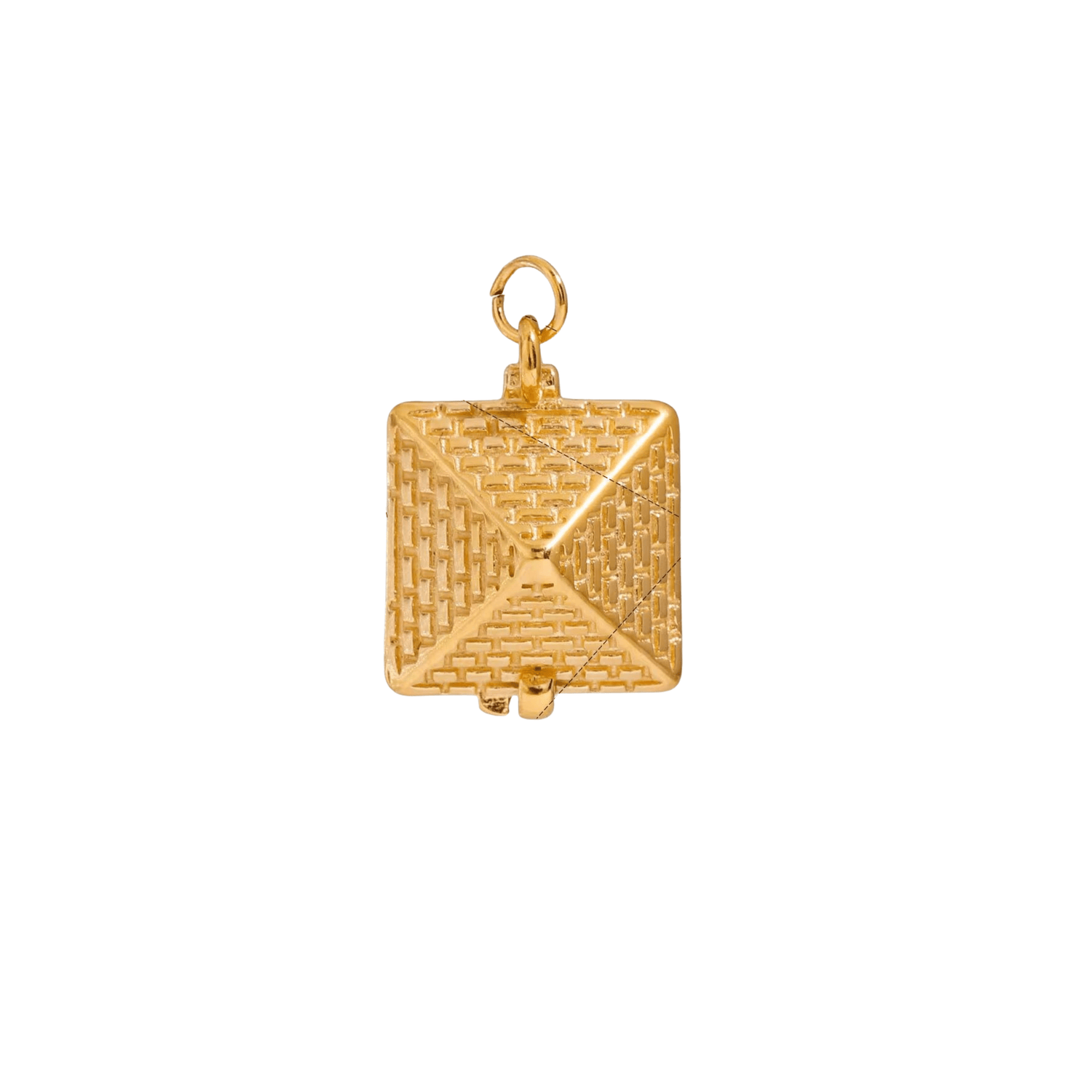
Sustainable Sourcing Shapes Ethical Gift Choices
Share
In the vibrant jewelry bazaars of Mumbai, where the air hums with the rhythmic tapping of hammers on silver and the gleam of gold catches every eye, a subtle yet profound shift is taking place. Indian shoppers, long captivated by the allure of tradition and brilliance, are now probing beyond the surface: Where was this gold mined? Who shaped this earring? Does this gift embody ethics as much as elegance? In the midst of festive clamor and the timeless ritual of gifting, sustainability is fundamentally altering India's approach to jewelry, with innovative brands like Foramour at the forefront of this transformation.
Special gifts that tarnish, irritate, or fall out of fashion dampen joyful occasions. That disappointment clouds memories meant to endure. Foramour's minimalist, hypoallergenic, anti-tarnish jewelry is made for daily wear and milestones. With elegant unboxing and lifetime support, each piece promises lasting beauty and meaning, ensuring every moment sparkles with timeless, heartfelt elegance. Shop Now!
Sustainable Sourcing Shapes Ethical Gift Choices in India's Jewelry Market
Rising appetite for high-end, tailored, and environmentally conscious jewelry is prompting Indian buyers to harmonize their moral principles with age-old gifting customs. From the luminous celebrations of Diwali to elaborate wedding ceremonies, jewelry holds an indelible place in Indian society. However, contemporary consumers particularly urban millennials and Gen Z dwellers in hubs like Delhi and Bengaluru are elevating accountability to match opulence. A recent analysis reveals that the global gifts novelty and souvenir market, pegged at USD 13.79 billion in 2024, is anticipated to climb from USD 14.28 billion this year to USD 19.40 billion by 2033, advancing at a compound annual growth rate of 3.90% through the forecast span. Within India, this expansion is propelled by escalating interest in bespoke, eco-responsible presents that echo cultural roots while adopting progressive ideals.
Foramour stands out as a pioneer, fusing upscale fashion jewelry with principled procurement practices. By emphasizing repurposed metals and gems free from conflict, it strikes a chord with an expanding cohort of Indian patrons who view jewelry as more than mere decoration it's a declaration of principles. The enduring tradition of presenting jewelry, be it for a bridal ensemble or a festive corporate package during Diwali, remains irrefutable. Nevertheless, with heightened ethical consciousness, purchasers are gravitating toward offerings that avoid the pitfalls of labor exploitation or ecological devastation.
This evolution mirrors broader global patterns where gifting transcends mere exchange. A present is bestowed sans anticipation of recompense, merely as a token of affection. Novelties, conversely, are crafted without utilitarian intent, marketed for their quirkiness, wit, or freshness. These encompass individualized tokens, artisanal creations, memorabilia, ornamental pieces, and locale-specific mementos that encapsulate heritage or voyage recollections. The novelty category spotlights distinctive, amusing, or voguish articles meant to delight or astonish. This sector flourishes amid seasonal spikes, spontaneous acquisitions, and societal nuances, with surges during observances, carnivals, and wanderlust periods.
Emerging Trends in India's Jewelry Sector
Official dispatches from the Ministry of Commerce and the Gem Jewellery Export Promotion Council underscore a notable pivot toward conscientiously acquired precious stones and alloys. Metropolitan dwellers, especially in megalopolises such as Mumbai and Chennai, are spearheading this metamorphosis. Polls conducted by the National Institute of Fashion Technology and the Associated Chambers of Commerce and Industry of India affirm that eco-friendliness ranks paramount in the upscale gifting arena, with environmentally attuned shoppers leaning toward marques that champion openness.
This movement is far from ephemeral. India's environmentally mindful gifting sphere is on the cusp of substantial enlargement, spearheaded by younger demographics. Amid Bengaluru's innovation enclaves and Delhi's elite emporiums, ambitious professionals are selecting adornments that narrate tales of empowered craftspeople, safeguarded habitats, and revitalized legacies. Foramour's adaptable creations, forged from reclaimed silver and laboratory-cultivated diamonds, capitalize on this fervor, delivering presents that are intimately bespoke yet morally upright.
Government initiatives further bolster this trajectory. For instance, policies aimed at streamlining gold mining and reducing import dependencies, as outlined in reports from bodies like NITI Aayog, encourage domestic supply enhancements. Coupled with international trade agreements, such as the prospective India-UK FTA projected to elevate exports from Rajasthan's gems and jewelry sector, these efforts signal a robust framework for sustainable practices.
Real-World Impact: Ethical Jewelry in Action
Throughout India, jewelers are acclimating to this fresh paradigm. Select luxury labels are transitioning to reclaimed silver and untainted gold, whereas entities like Foramour forge alliances with craftspeople employing green fabrication techniques. Such synergies not only sustain ancestral artistry but also curtail ecological footprints. Take Jaipur's artisans, for example, who are progressively embracing circular economy principles, recycling resources to fashion exquisite works that harmonize legacy with eco-stewardship.
Corporate bestowal, an ascending facet of India's gifting domain now valued at over ₹6.25 lakh crore (approximately USD 75 billion in 2024 and forecasted to hit USD 92.32 billion by 2030 at a 3.55% CAGR), is likewise adopting this inclination. Insights from a comprehensive study indicate that the corporate gifting market attained USD 822.56 billion last year and is poised to ascend to USD 886.56 billion this year, en route to USD 1209.97 billion by 2029 with an 8.1% CAGR. Enterprises favor utilitarian branded wares, edibles, bespoke apparel, electronic vouchers, experiential offerings like travel or events, and sundry items disseminated via direct or intermediary conduits for SMEs and conglomerates alike.
A noteworthy trend involves startups like Mona unveiling artisanal gift crates in 2023 to uplift female and marginalized innovators, underscoring a pivot toward inclusive and localized procurement. In India, corporations grappling with mandates to conform to ESG benchmarks are pivoting to principled jewelry for staff incentives and patron tokens. Foramour's meticulously wrought, eco-sound artifacts are ideally suited to fulfill this niche, merging coveted extravagance with societal accountability.
Sustainable procurement amalgamates moral, ecological, and fiscal facets, targeting enduring resource viability while mitigating supply chain intricacies and exploitation risks. Moral quandaries encompass guaranteeing equitable work conditions, honoring native entitlements, and equilibrating ecological aspirations with operational pragmatics. Approaches for harmonized sustainable procurement entail rigorous vendor scrutiny, supplier involvement and skill enhancement, circular economy adoption, and candid consumer dialogue.
Challenges in the Ethical Jewelry Landscape
Nonetheless, the odyssey toward principled jewelry is fraught with obstacles. Visibility deficits persist in India's gemstone and alloy provisioning networks. Although worldwide criteria like Fairtrade furnish explicit yardsticks, numerous local purveyors falter in furnishing authenticated origin details. The Bureau of Indian Standard's hallmarking regime assures caliber but frequently sidesteps ethical facets, engendering trust voids among buyers.
Pricing poses an additional impediment. Morally procured jewelry typically commands a surcharge, potentially dissuading budget-conscious patrons in provincial locales. Cognizance disparities abound metropolitan denizens grow adept at sustainability accreditations, yet inhabitants of secondary and tertiary urban centers may overlook them. For marques akin to Foramour, surmounting this knowledge chasm via lucid narratives is pivotal to cultivating confidence.
Technological strides, including blockchain, amplify openness and trackability in provisioning chains, nurturing consumer faith and promoting principled commerce. Joint ventures can fortify these endeavors, underscoring the necessity for perpetual discourse, participant involvement, and a ethos that equates moral deliberations with pecuniary results to traverse sustainable procurement's intricacies and foster a viable, just worldwide economy.
Studies, such as those examining Gen Z's inclinations toward eco-benign fashion, disclose that patrons accentuate green fabrication, moral procurement, and supply chain clarity. This inclination dovetails with wider inquiries into corporate social accountability's sway on patron fidelity within the jewelry realm, where sustainable methodologies bolster allegiance.
Opportunities for Growth
Notwithstanding these hurdles, the prospects are vast. India's gifting arena, appraised at exceeding USD 75 billion presently, proffers abundant terrain for entities like Foramour to prosper. By framing principled jewelry as both desirable and dutiful, they can seize the burgeoning corporate bestowal niche, wherein ESG-congruent acquisition is standardizing. Circular paradigms, stressing repurposed substances, also vow operational efficiencies, diminishing import dependencies and curbing ecological detriment.
Foramour's methodology amalgamating modifiable aesthetics with sustainable procurement delineates a paradigm for triumph. Through artisan collaborations and harnessing innovations like blockchain, the marque can proffer patrons not merely commodities but chronicles of influence. This reverberates profoundly in a nation where bestowal is as emotive as it is customary.
Further bolstering this are export surges in gems and jewelry, with India's figures ascending marginally in recent cycles, propelled by ethical mandates. As worldwide patrons clamor for traceable origins, Indian exporters attuned to these norms stand to gain, particularly with pacts like the India-UK FTA on the horizon.
A Memorable The Future of Ethical Gifting
As India's jewelry domain matures, the horizon for principled bestowal gleams promisingly. Investigations from establishments like IIM Ahmedabad and the National Council of Applied Economic Research intimate that moral procurement will redefine patron allegiance by 2030. Laboratory-forged diamonds and reclaimed alloys are destined to prevail, tendering eco-viable substitutes to extracted treasures sans forfeiting allure. For marques like Foramour, the trial and prospect resides in articulating persuasive sagas of lucidity and intent.
Envision a Diwali festivity wherein each bestowed pendant bears a covenant: of equitable remuneration for craftspeople, of undisturbed quarries, of a nurtured orb. That's the aspiration propelling India's principled jewelry surge. As patrons progressively synchronize their ethos with acquisitions, marques that wed heritage with accountability will not solely captivate affections but also reconfigure the essence of imparting a truly consequential gift.
Frequently Asked Questions
What is sustainable jewelry sourcing and why is it important in India's gift market?
Sustainable jewelry sourcing involves using ethically mined materials, recycled metals, and conflict-free gems while ensuring fair labor practices throughout the supply chain. In India's rapidly growing gifting market, valued at over $75 billion, consumers especially urban millennials and Gen Z are increasingly choosing jewelry that aligns with their moral principles. This shift is transforming traditional gifting customs during festivals like Diwali and weddings, as buyers seek presents that embody both elegance and ethics.
How are Indian jewelry brands like Foramour implementing ethical practices?
Leading Indian jewelry brands are adopting circular economy principles by using reclaimed silver, lab-grown diamonds, and recycled materials in their designs. Foramour, for example, partners with craftspeople who employ green manufacturing techniques and emphasizes conflict-free gems in their collections. These brands are also leveraging technologies like blockchain to enhance supply chain transparency and provide customers with authenticated origin details for their jewelry purchases.
What challenges does the ethical jewelry market face in India?
The main challenges include supply chain transparency deficits, higher pricing for ethically sourced jewelry, and awareness gaps between urban and rural consumers. While the Bureau of Indian Standard's hallmarking ensures quality, it often overlooks ethical aspects, creating trust issues among buyers. Additionally, many local suppliers struggle to provide authenticated origin details, and the premium pricing of sustainable jewelry can deter budget-conscious customers in smaller cities and towns.
Disclaimer: The above helpful resources content contains personal opinions and experiences. The information provided is for general knowledge and does not constitute professional advice.
You may also be interested in: Custom Jewellery Gains Ground in Emotional Gift-Giving – foramour
Special gifts that tarnish, irritate, or fall out of fashion dampen joyful occasions. That disappointment clouds memories meant to endure. Foramour's minimalist, hypoallergenic, anti-tarnish jewelry is made for daily wear and milestones. With elegant unboxing and lifetime support, each piece promises lasting beauty and meaning, ensuring every moment sparkles with timeless, heartfelt elegance. Shop Now!
Powered by flareAI.co

